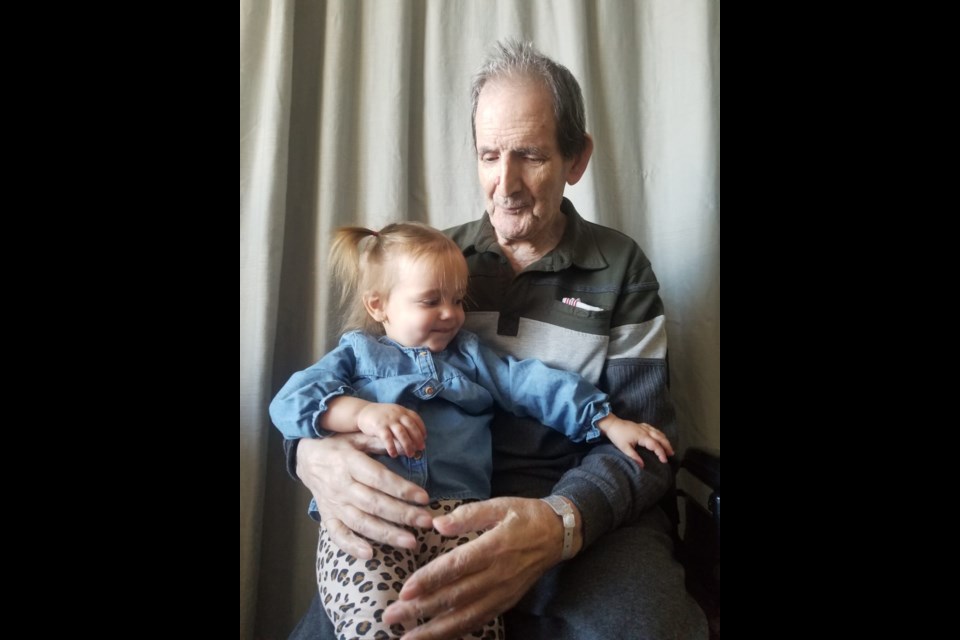Currently 17,000 individuals are diagnosed with Dementia in Calgary and surrounding area while 56 per cent of Canadians are concerned about being affected by Alzheimer's disease in their lifetime.
Dementia is a general term that is used to describe a set of symptoms that affect the brain. Though it is progressive, it is not a specific disease but many other diseases including Alzheimer's, Lewy Body, Jakob, Parkinson's and Huntington's, can cause dementia.
Alzheimer's disease is the most common cause of dementia and is an irreversible, slow decline of the brain that gets worse as time goes on. Brain cells become destroyed, impacting ones memory, thought process and language. There is no cure for this fatal disease and ultimately all aspects of ones life begin to deteriorate.
"Right now the leading theory is that it's linked to some abnormal protein build up's in the brain. As these proteins start filling up the brain, basically they start causing cell deaths and lead to large sections of the brain dying off," explains Paul Bartel, manager of learning and support services with the Alzheimer Society of Calgary.
From a personal experience, Alzheimer's disease is prolonged, cruel and heartrending. The life of a loved one becomes jaded to a point of almost no recognition or recollection.
The person I grew up calling dad was my grandpa or better yet known as Voze. This Portuguese, tall, dark-eyed, soccer-loving man was the light in my world and was so full of life and happiness. His love for wine was never lacking as he would make barrels upon barrels and store them in his cold room. In 2007, the wine had got the best of him and he was given the ultimatum to either keep drinking or in other terms, the drinking would take him. He quit for the sake of his family and what happened next was difficult, but nonetheless inevitable. Voze was diagnosed with Alzheimer's disease. This news left our family devastated as we were all too familiar with its downward spiral of effects.
"There's a lot of things researchers are looking at that seem to be contributing factors, certainly prolonged heavy alcohol use can lead to its own form of dementia, or Korsakoff syndrome. The thinking is, or the theory that seems to be getting some traction right now, is basically anything that might lead to inflammation of the brain might be a contributing factor," explains Bartel.
Early on, that light still sparkled in Voze's eyes. He occasionally forgot your name or lost train of thought in conversation but would shrug it off and go about his day. He still enjoyed his walks, his word searches, his solitare and of course, his Portuguese TV. As time continued, the disease kept creeping and he slowly forgot more and more all while his ability to simply move became a task in itself. This was a sad but inescapable fate.
Voze progressively got worse as it seemed only months had gone by. I recall looking at photos that were not even a year apart and noticing the decline in his appearance. Talking to him became a struggle as he would mention bits and pieces from his younger years, the same bits and pieces he'd refer to dozens of times before. His speech becoming mumbled and mobility becoming a thing of the past, the decline kept scooting along. The next gut-wrenching hardship was one none of us wanted to accept - him not remembering the people he cared so deeply for, often shouting for us to leave.
"Because everybody's brain is so unique, what the progression looks like for each person can be quite distinct but usually with Alzheimer's disease it starts with memory loss and then will progress from there into other areas of function around language, motor control, ability to plan, those kinds of things," said Bartel.
The slump continued as he got to a point of not recognizing himself, and at times getting upset with that man in the mirror. The despair in my grandma's eyes, heartbreaking, and that light in Voze's eyes, near close to faint.
A few weeks ago Voze was admitted into a long term care centre. He no longer remembers anyone. Not his wife of 56 years, not his children, not his grandchildren or his great granddaughter. In his new home he is confined to a floor with like-minded individuals and a room showcasing his favourite soccer team scarf, overcrowded by a handful of family photos. Among the photos sits one that would bring a smile to his face - if he could only remember - an Army photo sure to be reminiscent of his time in Angola. His bed is positioned next to two corner windows. A little bit of light shines in on the man who's slowly losing his.
I never thought this would be Voze's fate, nor did our family. I can't begin to explain the feeling of desolation I carry knowing that he fails to remember me.
"In general, after a diagnosis, the average lifespan is about eight to 10 years," said Bartel. "For something that we know is progressive and will lead to death it's actually a fairly lengthy time frame and that creates its own unique stresses for the family to deal with."
And so I'm left hanging on, hanging on to an image of a beautiful soul who always wanted nothing but the best for me. The man who once stood at a train station in Portugal telling my better half to always take care of me and treat me with respect. I'm left with an image I'm trying so hard to not let get tarnished by a viscous, unkind disease that's slowly taking that light in my world away. Though the sparkle in his eyes has faded, and at times I feel as though I am starring into the abyss of sadness, he's simply just passed that sparkle on to me.




